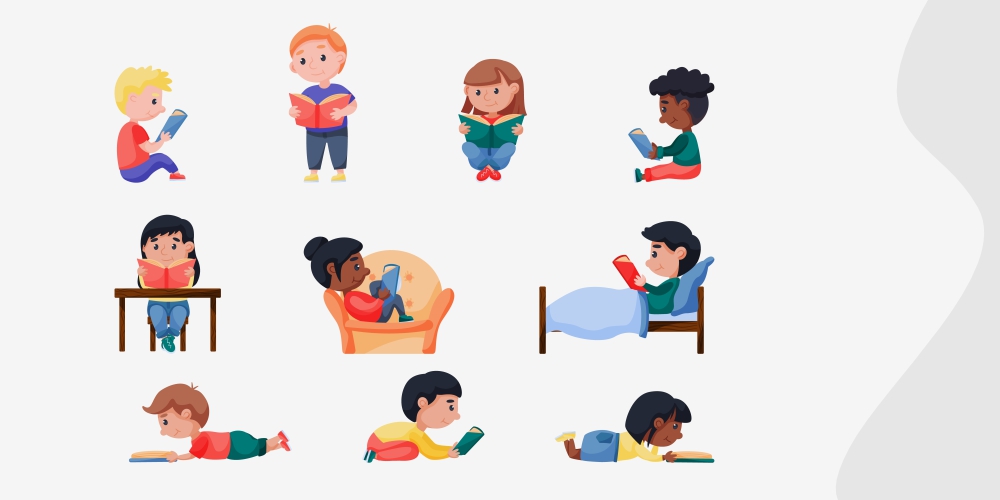Getting young children to convey their thoughts clearly on paper might be quite a tough job for some parents. This includes teaching children how to write longer sentences. Writing sentences might be fairly natural for some children, but this might not be the case for all of them. Writing sentences includes understanding sentence structures and grammar rules. This might make writing longer sentences tough for little children.
There are a number of ways you can teach your kids to write longer sentences. However, before that, you need to teach them the basic parts of speech, which include nouns, verbs, adjectives, etc. If your kid knows them beforehand, it will be much easier to teach him/her to write longer sentences.
Here are a few tips regarding teaching your children how to write longer sentences.
Tips to Teach Children How to Write Longer Sentences
Listed below are some of the ways that might help kids improve their sentence writing:
1.Teaching parts of a sentence

You need to start teaching your child how to make their sentences longer by explaining the parts of sentences. Explain to them that there are two basic parts to a sentence: a subject, that is, a part of a sentence that contains the person or thing performing the action (or verb) in a sentence, and a predicate, that is, the part of a clause that includes the verb and the words that tell what the subject is doing. Take examples of a few sentences and point out what a subject and predicate are. Such as,
•The veterinarian examined all the cows.
Subject: The veterinarian
Predicate: examined all the cows.
Your child must be aware of the fact that if the sentence does not include any of the parts, then it is a fragment. Also, explain to them the definition of a run-on sentence: A run-on sentence is formed when two independent clauses are written together without proper punctuation or conjunctions. Such as:
•Dhoni finished the match with a six he is an excellent cricketer. – Incorrect
•Dhoni finished the match with a six; he is an excellent cricketer. – Correct
This will help them understand the importance of punctuation.
2.Practising Sentence-writing Skills
The best way for kids to understand how to make their sentences longer is through hands-on experience. You can teach them with the help of an activity by writing some basic sentences on task cards that lack detail. Take a task card and explain to your child that the sentence is ordinary and that there are ways to make it interesting.
For example, let’s say that the sentence is “She picked apples.” Now ask your kid to think about a few questions regarding this sentence that can make it interesting. The first question that might strike the child is, “Who picked the apples?” Now you can use some specific name to refer to who picked apples. For example, let’s say that your child chooses the name Kim. Help your child make the necessary changes to the sentence to implement the name.
Even after this, the sentence “Kim picked apples” looks simple and plain. Therefore, make your child ask further questions in relation to this question. The next question might be, “How many apples did Kim pick up?” and “Why did Kim pick up apples?”
To answer these queries, you need to further teach your kid to change the sentence accordingly. For the question “How many apples did Kim pick up?” The sentence can be framed like this: “Kim picked up half a dozen apples.” And to answer the question, “Why did Kim pick up apples?” the sentence can be revised this way: “Kim picked up half a dozen apples to bake a pie.”
After this, you can keep making your child practise by providing them with similar sentences and asking them to think about questions. You can also ask them to practise by trying to speak English. Correct them whenever they make a mistake; using a language in speech is one of the most effective ways of learning it.
3.Creating Sentences from a Word
You can also use words as a basis to help them write sentences. The word can be anything from a dog to a unicorn. This will become the ‘who’ of the sentence.
Now you can teach your kid to ask questions regarding the subject of the sentence. This can be what the subject is doing, where the subject is, when the subject is doing the activity, and finally, why the subject is doing it.
For example, let’s say your kid picks up a person’s name like Ram. The next question can be, what is Ram doing? To answer this question, your kid says, “Ram is studying.” Next, where is Ram studying? To answer this question, “Ram is studying in his room.”
After this comes, “When did Ram start studying in his room?” For this, the answer might be, “Ram has been studying in his room since morning.” By adding more information to the sentences, you can teach your child to explain the activity and write longer sentences.
4.Encourage More Reading

If you want to make learning more fun for your child, you can put those grammar rules aside for once. One of the best ways to teach your child how to write is to encourage them to read more. Give them storybooks suitable for their age and ask them to read them loudly.
Reading not only helps them understand sentence structures but also expands their vocabulary and imaginative skills. It helps them understand how they can use those words to frame sentences. Once they are done reading, ask them simple questions about what they have read and encourage them to write their answers in a notebook. This will help them convey their thoughts by writing longer sentences.
Conclusion
If your child has just started learning how to write, you can teach him/her how to write longer sentences in a fun way by creating sentence-writing games. Asking kids to create a sentence with the help of a picture can also encourage them to write longer sentences. Being patient with children and praising them for their work will also make them comfortable with writing. You need to make sure that they keep practising so that, with time, they can excel in it.
To stay updated about all the important information from the Narayana Educational Institutions, Join our Telegram channel: https://t.me/narayanaeducationalinstitutions

Brilliant ideas
Parents can follow it.
Thank you Narayana School for giving such ideas to teach children at home.
Helpful for children..
Thanks. If I got chance to read this post during vacation, I would have practised without wasting time.
Any way it’s not too late, very useful tips. I will practise with her
Nice
Nice thing about the information for this note
Thank u
Very good explanation
Thank you
Well! Initially it is really important for make it more interesting and exciting for them so they eagerly wanted to read sentences. It is important to teach them how to speak English in daily life so it becomes more easy and interesting that they are not only can write long sentences but by writing them they can learn speaking also .for ex- when I am in school my teacher always wanted me to read book and tell the meaning of it but she doesn’t wanted to know that It is not that much interesting for me coz it’s way too hard without help so I want them to be comfortable.
You have provided good techniques in sentences formation, thank you